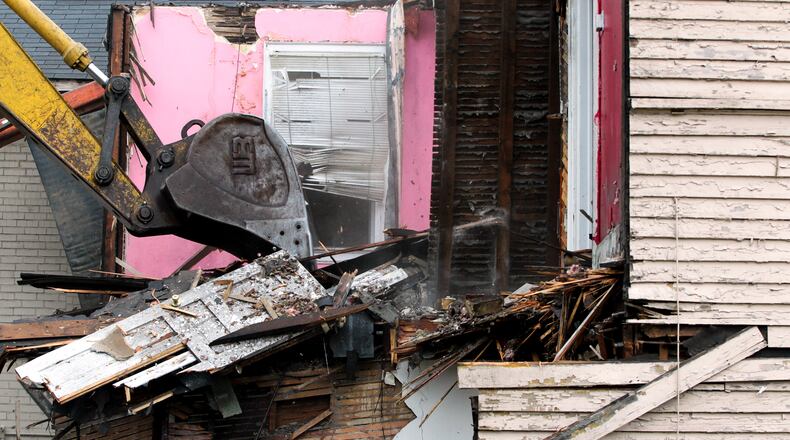“I would say like by October, mid-November we will probably have at least 20 of our necessary 40, that’s what my goal is,” Dudley said. “I think that’s very doable.”
Dudley said officials have yet to receive guidelines from the state but want to be prepared once they do. There is a huge sum of money up for grabs once the guaranteed funding is exhausted.
When the state biennial budget passed, it allocated $150 million for commercial and residential demolitions and $350 million for removal of hazardous materials that remain after demolitions. Each of the 88 counties will automatically receive $500,000 for demolition and $1 million for hazardous material removal.
The remaining $106 million in demolition and $262 million for hazardous material removal will be disbursed “first come, first served.”
Land bank Executive Director Seth Geisler said officials are reaching out countywide to let officials know about the new funding sources, including West Chester Twp., where trustees tonight are expected to vote to officially join the land bank.
West Chester Twp. is one of the last Butler County communities to join the land bank. Other members include Fairfield, Hamilton, Middletown, New Miami, Seven Mile and Trenton and the townships of Fairfield, Hanover, Lemon, Liberty, Madison, Oxford, Ross, St. Clair and Wayne.
“There’s always been this reticence to use land banking because we don’t want to get in there and mix it up with the free market,” Trustee Mark Welch told the Journal-News. “The free market takes care of itself.”
He said he is convinced the land bank is a valuable tool the township should access.
Township Administrator Larry Burks said the new money did not play into the township’s decision to join the land bank. He said both he and the trustees needed a little “education” about the workings of the land bank before joining.
“There are a lot of benefits we receive just by becoming members,” Burks said. “We’ll know which properties that go to tax sale and which properties are eligible for land banking, that means there may be a property in distress and at that point the trustees will be notified and they can decide whether or not we want to make any efforts with that property.”
The county has spent about $7.4 million in state and federal money tearing down approximately 750 eyesores since 2012. Those demolitions have been almost entirely in the two big cities and grant restrictions excluded commercial demolition.
The land bank board has about $950,000 in unencumbered funds — from delinquent tax assessment collections funds (DTAC) — to help communities across the county demolish eyesores, in addition to the new money.
“As we’ve begun to look at it it’s a proven model that’s helped other communities across the county,” Trustee Ann Becker said. “And starting to understand a bit more where our older communities are in the county, with how they are doing redevelopment, we’re just trying to get a good understanding of the options available for West Chester. We might not pull the trigger on needing anything from the land bank, but understanding what’s out there and keeping our community strong is very important to us.”
About the Author

